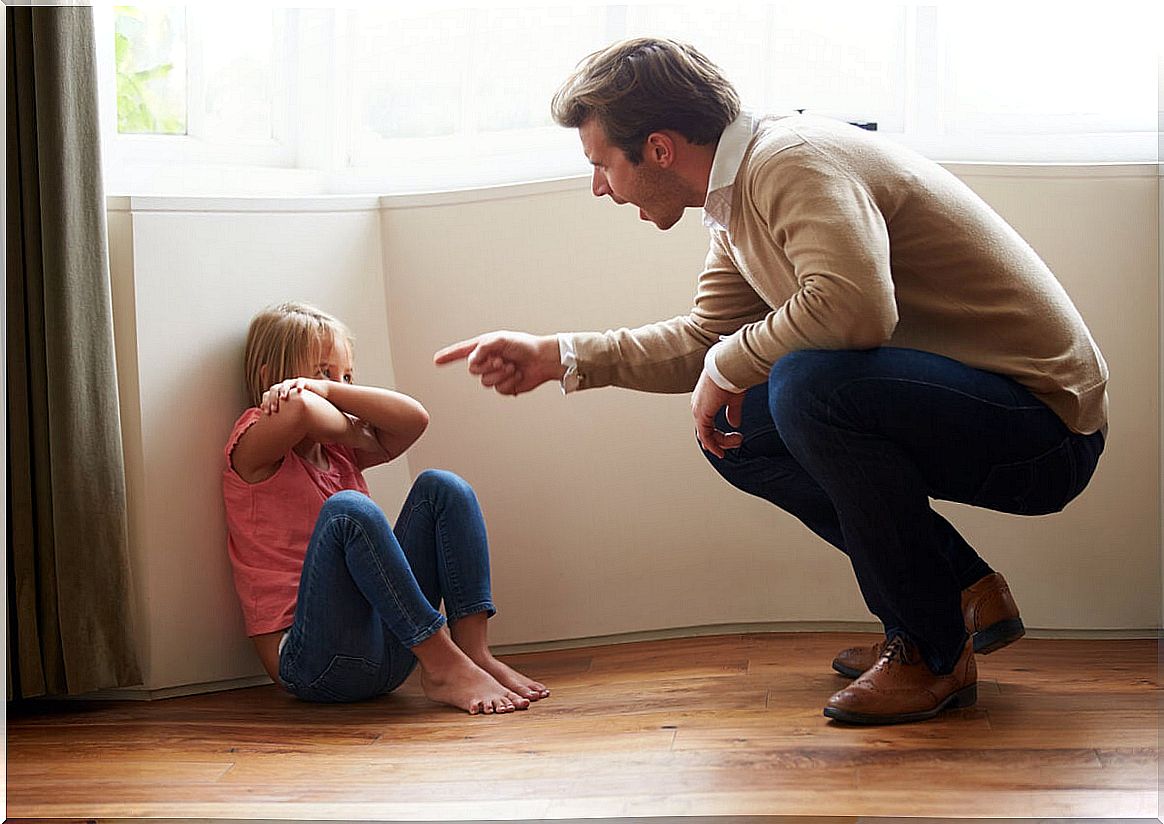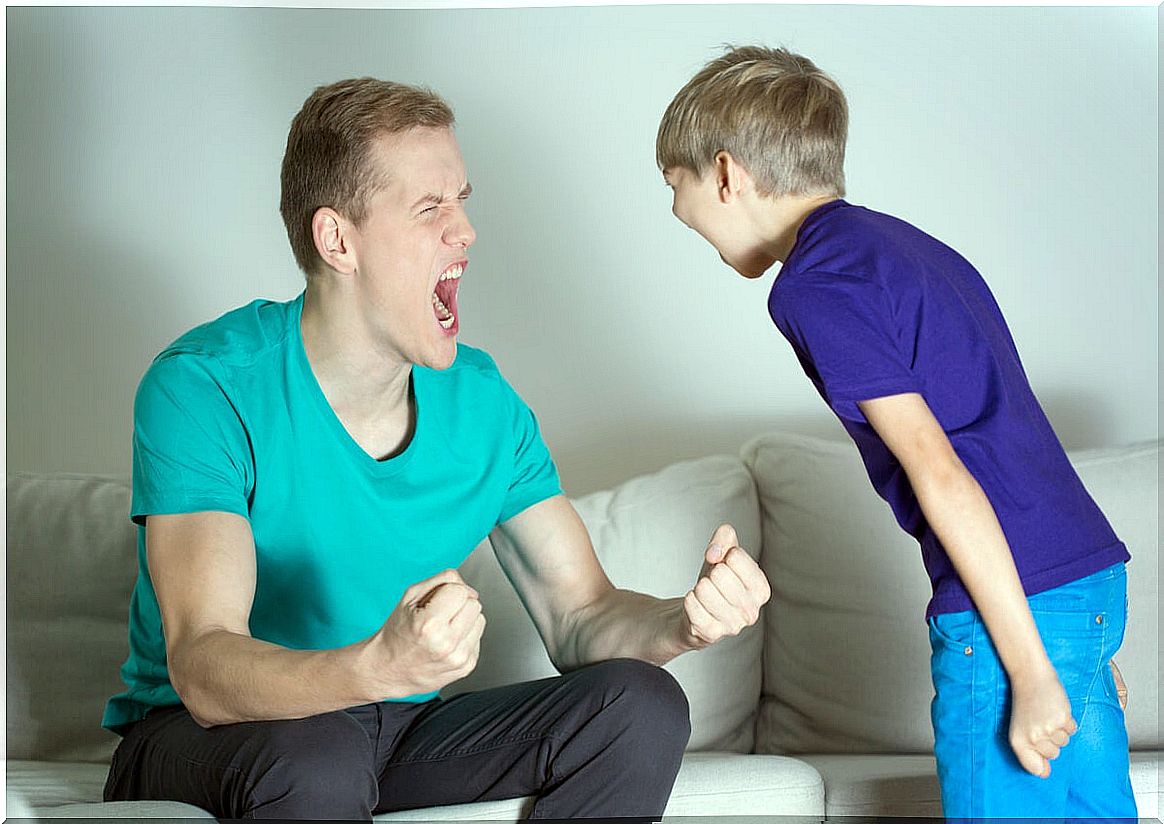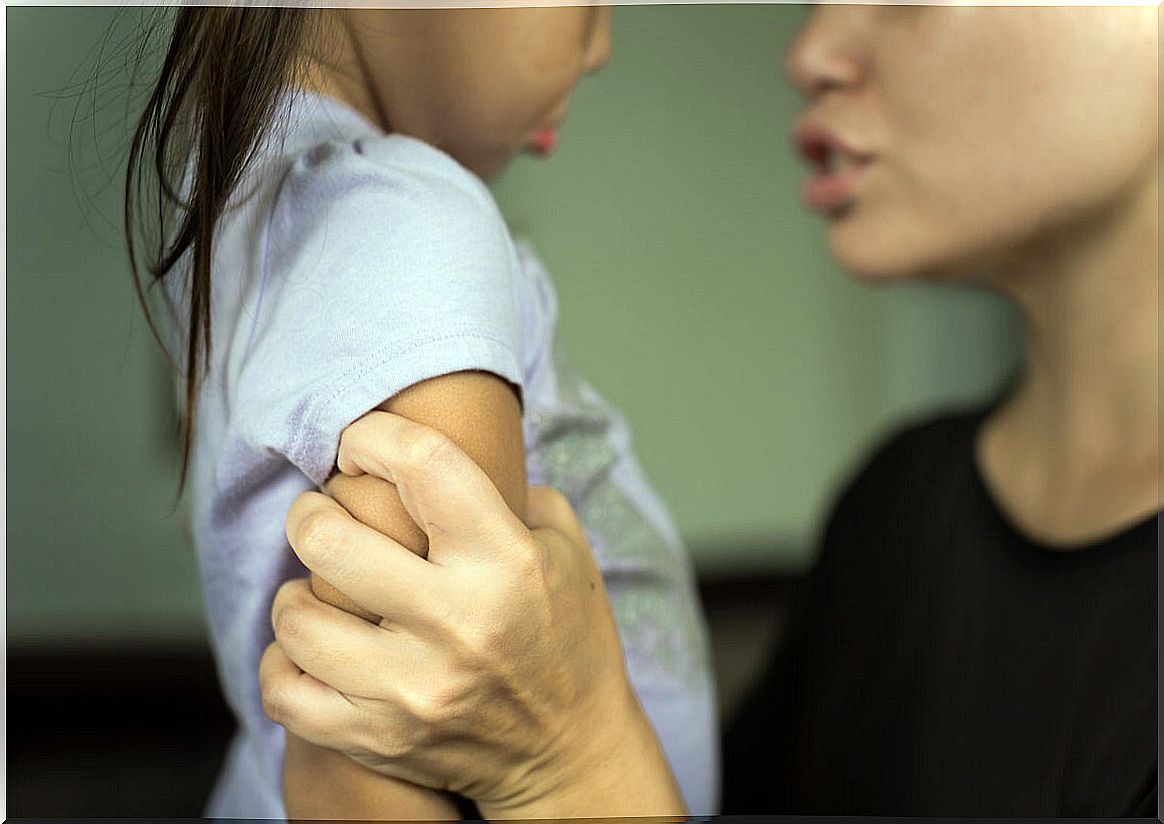When Aggression Becomes A Pattern Of Relationships In The Family: Ideas To Manage It

Every family has conflicts and times when aggressive behaviors arise. However, on some occasions this discomfort is no longer just a sporadic situation, but because of its frequency we could speak of a chronic state. This is when aggression becomes a pattern in family relationships and can have significant consequences.
When aggression becomes a pattern of relationships in the family, it is most often due to inappropriate parenting patterns. Despite the fact that there is currently a lot of information on the best training practices, the truth is that the inadequate psychological constitution of the parents often weighs more.
Over time, it is no longer just parents who adopt inappropriate behaviors, but their children replicate them in different ways. It is then that aggression becomes a pattern of relationships, either because the parents themselves are aggressive or because with their permissiveness they cause that there is no control of emotions.

When aggression becomes a pattern
Aggression becomes a pattern when it is assumed as the natural way to manage conflict and frustration. These take place on those occasions when the other does or does not do something that goes against their own wishes, as well as when you do not get what you want for some reason.
The normal thing is that these types of situations give rise to a feeling of anger, since in principle everyone wants to do and get what they want. What happens from then on depends on the parenting guidelines that are adopted in the family. These begin with the same attitude of the parents: how do they react to conflict and frustration? What is your response when children do not follow your orders or engage in undesirable behavior? How do you handle conflicts with your partner?
Two very important elements are added to the above. The first is the same upbringing that parents received when they were children. The second, the degree of coherence between emotional management and emotional education that they intend to impart. Thus, they can condemn aggressiveness, while opting for it in practice.
Abuse and permissiveness
In most cases, aggression becomes a pattern within contexts in which abuse, permissiveness, or both predominate. Typically, other factors are also present. In the Department of Psychology of the Dr. Tomás Romay Polyclinic of Cuba, a study was carried out with children from 9 to 11 years old, all of them evaluated as infants with aggressive behaviors. Their families were also included.
This study revealed a number of characteristics of the families of these children:
- 83.3% lived in overcrowded conditions.
- The level of education of the parents was lower than average.
- 63% of the parents did not have a stable employment relationship.
- In 100% of the cases it was reported that the family had aggressive relationships and impulsivity prevailed.
- In 60% of the cases, parental rejection of their children was evidenced.
- In a third of the households, 33.33%, one of the parents was alcoholic.
- 60% of the children lived in extended families, 30% in extended families and only 10% with the basic family nucleus.
- 70% of the parents had a poor social life.

The psychological condition of the parents
From the foregoing, the idea that poverty and lack of schooling are important factors for aggression to become a habit can be deduced. However, this is not always the case. Although we have talked about conditions or circumstances that are associated with aggressiveness, not all people who live in these conditions nor all those who lack resources have poor emotional regulation. In the same way, these types of patterns are present in different social classes.
Everything indicates that the aggression is installed by the combination of various factors. In statistics, the high percentage of parents who feel rejection by their children, as well as those who have a limited social life, is striking.
A general conclusion would be that in those families in which aggression becomes a pattern it is important and necessary to review the psychological condition of the parents. There are reasons to believe that they have raw individual problems and that doing so could transform family ties into a positive one.









